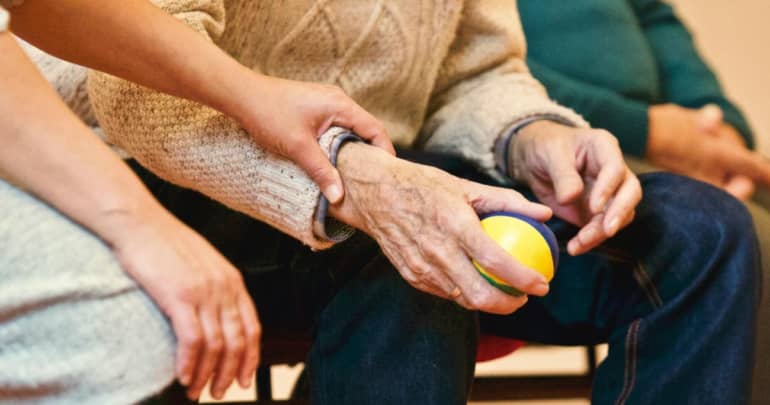Substance abuse and addiction are both incredibly challenging and isolating, often affecting entire families. For families of veteran loved ones, these challenges can be difficult to navigate, especially as many veterans may feel resistant to pursuing professional treatment or may still adhere to military cultures that may celebrate dangerous or self-destructive relationships with addictive substances. Hosting an intervention for a veteran loved one is difficult, but it is sometimes necessary. However, if an intervention is needed to support sober change in a veteran loved one, families should approach the idea of an intervention with caution, education, and planning.
When to Host an Intervention
Interventions are complicated and create an incredibly intense emotional situation for veterans and their families. This crucial decision should not be made lightly. For some, an intervention may be necessary not only as the use of drugs or alcohol continues to affect daily life and leads to self-destructive consequences and personal, emotional, and financial hardship but also only after other attempts at communicating the need for change have failed.
Hosting an intervention also comes with risks. Many veterans affected by addiction or substance use disorder (SUD) can perceive interventions as a betrayal of trust or a personal attack on their character and may meet the efforts of an intervention with intense resistance, lying, anger, and more. Unprepared intervention efforts can also compromise future supportive efforts from family members and loved ones alike, necessitating a careful, sympathetic, and educated approach to hosting an intervention. However, hosting an intervention can be necessary if other efforts have failed to help veteran loved ones understand the extensive effects of addiction not just on their own lives but also on the lives of those around them.
If a family decides to pursue an intervention for a veteran loved one’s use of drugs or alcohol, talking with dedicated treatment professionals like those at Hawaii Island Recovery to set expectations, create a plan, or consider having an interventionist present can all make these efforts effective for promoting change and familial healing.

Self-harm is devastating, not just to a veteran's physical health and well-being but also to the daily life of veterans, their mental health, and even their spiritual healing. From personalizing individualized strategies to engaging in community healing and camaraderie, we empower veterans to challenge self-destructive beliefs through understanding and dedicated physical, emotional, mental, and spiritual healing. Call to speak to us today at (866) 390-5070.
More infoHosting an Intervention for a Veteran
There is nothing easy about hosting an intervention for a veteran loved one, nor is it easy to challenge the effects of SUD, addiction, trauma, and the myriad of other challenges that veterans face. Having a plan on how to navigate an intervention to best support veteran loved ones is crucial.
Educate Yourself
Veterans have faced a unique set of challenges throughout their lives, with the use of drugs or alcohol being common among the veteran population for a variety of reasons. For some, drugs or alcohol may have started to emotionally process a plethora of traumatic experiences from the line of duty, from navigating an active warzone to attempting to self-medicate the challenges of survivor’s guilt, moral injury, flashbacks, and much more. Coupled with a pervasive on-base cultural acceptance of alcohol, it is common for many veterans to adopt substance use to cope with other underlying challenges.
Others may be exposed to prescription drugs as a result of injuries in the line of duty, developing into addiction in veteran life. Educating oneself about addiction as a disease, as well as the unique ways in which veterans are exposed to and affected by drugs and alcohol, is paramount.
Many veterans may also feel isolated due to their unique life experiences and have difficulty connecting with civilians after being discharged. Understanding the challenges veterans face and the forces that inform the use of drugs or alcohol in the first place is necessary to reach a new level of understanding, sympathy, and support that can improve the efficacy of interventions and promote a healthier approach to healing.
Plan Ahead for Hosting an Intervention
Hosting an intervention takes time, and planning is paramount. Because interventions are so emotionally charged, it is crucial to practice what each person wants to say, as well as clearly understand the intentions behind the intervention itself. Writing down how each person was affected by a veteran’s use of addictive substances can be important, as well as looking ahead to choose a comfortable location, time, date, and more where all people will be able to attend and not feel rushed by other outside forces, schedules, or stresses.
Planning also means paying attention to the words being used and avoiding accusatory language. While it is common to feel some anger or resentment as a result of addiction in the family, it is crucial to avoid blame during this time, and instead continue to focus on the need for change and unity.

Maybe you are a family member, like a brother or sister, or a close friend from work or childhood.
More infoExpect Resistance When Hosting an Intervention
Interventions are intense, and those receiving an intervention may feel blindsided, attacked, or otherwise uncomfortable. Expecting resistance during these interventions can help families best prepare to still support veteran loved ones, using evidence to address potential lies during this time, rather than making assumptions. Likewise, this can also empower families of veterans to emotionally prepare for these challenges and keep dialogues focused and open.
Provide Time to Speak
While hosting an intervention is about facilitating change, it is crucial to allow veteran loved ones to talk about their perspective, feelings, and more. These interventions are dialogues, and allowing veteran loved ones a chance to voice their thoughts is necessary to situate oneself as a support for change rather than an obstacle to further use.
Know the Options
Hosting an intervention is not about forcing a veteran loved one into treatment. Rather, it is about explaining why treatment is necessary and how the family has been affected so veterans can decide to pursue change themselves. Familiarizing oneself with local treatment facilities, options for drug or residential alcohol treatment, various amenities and programs available, and locating dedicated veteran support and treatment programs like those available at Hawaii Island Recovery can all help veterans make the most informed decisions for themselves.
Hosting an intervention is difficult, and it is an incredibly delicate time. Being emotionally prepared and educated about the process and expectations is essential. We at Hawaii Island Recovery understand the need to approach topics like addiction delicately and fairly, as well as meet each veteran where they are in their journey for truly effective and personalized healing. Each residential alcohol treatment program or drug treatment program is personalized, with proven therapies and experiential opportunities all backed by dedicated, veteran-specific programming. By combining the expertise of our professionals with the natural and cultural advantages of the Hawaiian island, we create a unique and effective approach to a transformed, sober life. For more information about us, call (866) 390-5070.
 Hawaii Island Recovery
Hawaii Island Recovery 










